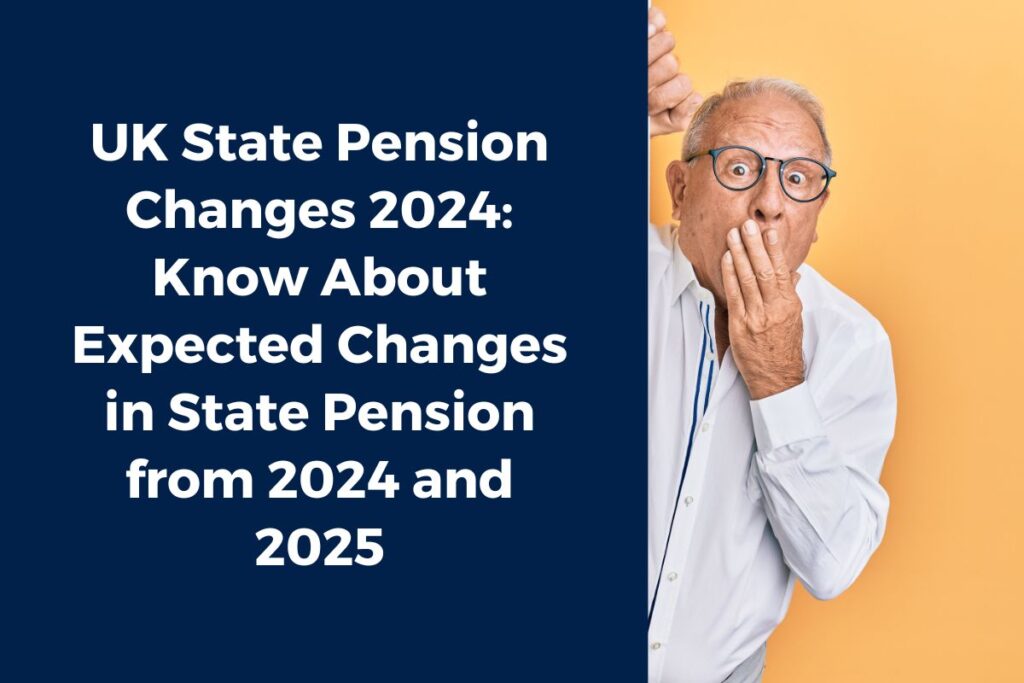On April 8, the state pension made its second-highest increase since the triple lock was implemented in 2011–12. The increase was 8.5%. This pertains to those who have opted to retire beyond the age of 60 and have made at least ten years’ worth of National Insurance Contributions (NIC) payments. A government account and a National Insurance (NI) number are requirements for receiving a UK State Pension Changes 2024. The state pension will go to €221.20 per week in April 2024 from €185.15 in 2022–2023.
UK State Pension Changes 2024
Men and women’s state pension ages are progressively rising, and for those born on or after April 1960, it will eventually climb to 67. Since the State Pension age will be reviewed periodically, it may alter once more in the future. Numerous variables, including shifts in life expectancy, influence this. The state pension in England has been increased by 8.5%, and now, this rate will apply.
Individuals who have chosen to retire at a specific age after 60 and have made at least 10 years of NIC contributions are eligible for the state pension. The state income in the United Kingdom is subject to taxation if the total taxable income over the personal allowance level. Eligible citizens must have a government gateway account and an NI number in order to submit a claim for the UK State Pension Changes. Once all of these are configured, you may monitor the status of your payments from anywhere at any time.
State Pension Age in 2024
In 2024, the state pension age for men and women will be 66 and it will rise gradually for everyone born after April 5, 1960. From May 2026 to March 2028, State Pension Age could increase to 67. In 2044, it is anticipated to increase to 68. The state pension increased by 8.5% in April 2024 as a result of the triple lock guarantee. This is due to the fact that it represents the largest amount of inflation, 2.5%, and average wage growth. Thus, as of April 2024:
- The full state pension increased to £221.20/week, or £11,502 yearly, from £203.85/week.
- From £156.20 per week to £169.50 per week, or £8,814 per year, the basic state pension increased.
- The chancellor’s autumn announcement for 2023 included confirmation of the rise.

When is the state pension age increasing?
The government says that because people are living longer, the pension age needs to be raised, thus between 2026 and 2028, the state pension eligibility age will rise from 66 to 67. From 2037 to 2039, the age will thereafter increase to 68. The Conservative administration stated that it would not occur until 2044, despite rumors that the government may raise the age to 68 starting in 2035 in order to assist balance the public finances. Of course, the next Labour administration may implement its own modifications.
State Pension triple lock and it’s working
The “triple lock” policy is to credit for the largest salary increase ever for millions of state retirees this year. Commencing on April 6, 2024, the entire new state pension will have topped £11,000 for the first time ever. For people who were eligible for state pensions before to 2016, the yearly “basic” state pension has increased by more than £600 to £8,814 now.
However, the government will be spending a great deal of money on this large wage increase, so there are concerns that it may be modified or eliminated completely. The state pension triple lock is becoming a major topic of discussion at a time when political pressure to regulate public budgets is intensifying. A major feature of the Conservative agenda in the last election was the triple lock policy, which provides an annual rise in the state pension via one of three methods. It is in place to shield retirement income from inflation once people leave the workforce.
What is the triple lock?
In the 2010 Budget, the Coalition Government unveiled the triple lock policy, which was initially implemented in 2011–12. It stipulates that every April, the state pension would rise in accordance with 2.5 percent, wage growth, or the preceding September’s Consumer Prices Index measure of inflation (CPI), whichever is higher.
However this was greater than both inflation and 2.5%, the increase for 2024–2025 will be in pace with wage growth, at 8.5%. As a result of the triple lock following CPI inflation, which peaked in September 2022, seniors received a whopping 10.1 percent salary increase in 2023–2024.
What will the 2025 state pension be in full?
Since relevant earnings and inflation figures are not disclosed until later in the year, the exact amount of the full state pension in 2025 is still unknown. The triple lock is anticipated to increase by earnings in 2025–2026 as inflation is predicted by the Office for Budget Responsibility (OBR) to continue declining this year. This is expected to be 3.7 percent, according to OBR data, meaning that starting in April of next year, the new full state pension will grow to £11,928.
How to claim my state pension?
However, when you reach the appropriate age, yours won’t come by default. You must, instead, make your claim. A letter detailing the claim process should be sent to you by the Department of Work and Pensions (DWP) two months prior to your reaching state pension age. Applying online using the official government website is the fastest way to make a claim.
| Homepage | Click Here |


As a 70yr old pensioner living off of a reduced state pension with 43 years paying class 3 N.I.C.’s i still cannot qualify for ANY of the DWP 40 UK Gov benefits and this now includes the loss of The Winter Fuel Allowance curtesy of the Labour Party’s Change for the worse for pensioners.
I wish the media & social media would tell the whole truth about just how little amount per annum the State Pension really is after deducting both UK Gov and Scottish Gov TAX has been deducted off of my Local Government Workplace annual pension. Tax year 2024-2025 deduct almost £1700 from my reduced annual State Pension instead of hiding the fact that both government’s have been deducting tax from the first day of my new postponed official retirement date of 6th July 2019. The DWP & the UK Gov by simply changing the Pension retirement date from 65 to 66 yr of age without any advance notice! The UK Gov & DWP affectively cheated me out of 19 weeks UNPAID weekly state pension between 27th Feb 2019 – 6th July 2019 amounting to £2,770 unpaid state pension plus tax deductions.
Only 4 out of 10 UK Wide pensioners 12.7 million are actually in receipt of the full annual basic and new state pension less TAX if you also are in receipt of a workplace pension.
6 out of 10 retired pensioners are receiving only a greatly reduced pension LESS UK Government 20% Tax and in addition the Scottish Government also deducts 19% TAX but only on the first £2800 approx. HMRC adds both tax together and call it your total annual earnings but HMRC deducts all taxation off of only! your council workplace pension to hide the whole truth that both the Conservative Gov and now the Labour Government are being liberal about telling the truth that YES my UK State Pension has been Double Taxed from day one of my retirement by both governments as i live in Scotland.
I wish the media would print the whole truth why the Pensioner Triple Lock must be kept. Print pensioners
Gross annual total income.
Tax deducted
NET Pension left to live off of.
Less payments for huge food/household sundry price increases & are still rising due to all UK wide supermarkets price hikes and ripping off the public.
Plus huge energy bill price increases especially the Daily Standing Charges approved by the Energy Regular to blame. Q. Why are Scots having to pay the highest daily standing charges? Considering Scotland is providing the vast majority of Electricity and Gas
Keir Starmer & Rachael Reeves CUT Income TAX for retired pensioners with less than £23,000 a year gross of tax and tax pensioners who have total annual earnings of £50,000 a year gross this is the way to help all pensioners who are NOT in receipt of a full 100% weekly or monthly state pension to pay their bills and not have to choose between having food to eat or to pay their energy bills or being able to afford to pay Council Tax price hikes every year and the large Car Tax & MOT costs etc.